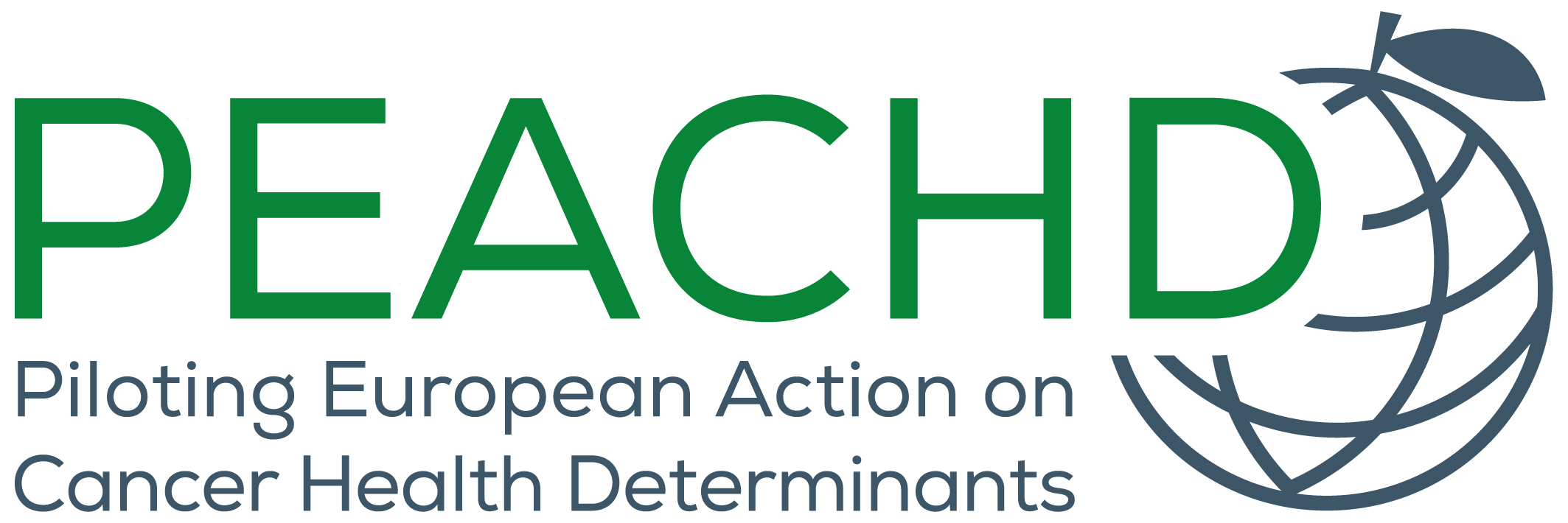Tailoring Implementation Strategies
PEACHD will adapt and operationalise the WHO-EU BRIEF approach to different European contexts and populations to tackle health inequalities.
PEACHED will use:
- stakeholder mapping and a participatory process and
- gap analysis based on systematic reviews of the latest evidence,
- to define and co-create tailored implementation strategies to be used in different contexts.
The intervention protocols and tools in each implementation strategy will be tailored and piloted for feasibility in three countries and settings, with special attention to refugees/migrants, and low-SES populations:
- Poland
- Czech Republic
- Spain (Autonomous Region of Catalonia)

Stakeholder consultation
Work Package 2 of PEACHD, led by the Portuguese Institute for Addictive Behaviors and Addictions (ICAD), manages the consultation of stakeholders on PEACHD through-puts and outputs, including:
- Stakeholder mapping to identify the most relevant profiles for different stages of PEACHD:
- Core expert stakeholder to consult on the developing work plan
- A ‘validating’ or ‘peer review’ group of experts, to give feedback on through-puts and drafts
- Key end-users of the PEACHD final products
- Recruiting stakeholders to small working groups for consultation in the 5 key knowledge areas:
- Environmental context (resources and impact)
- Gendered aspects (transversal)
- Displaced populations (refugees, forced migrants)
- Self-initiated approach (Generational uptake + digital interface)
- Low socioeconomic status (+ educational level/health literacy)
- Contributing to the dissemination of findings and products to key EU stakeholders to sustain impact (in collaboration with WP7)
Evidence reviews and Gap analysis
Work Package 3 of PEACHD, led by the Catalan Oncology Institute (ICO), is carrying out gap analyses on brief interventions to prevent different modifiable lifestyle risk factors, with the aim of informing the intervention strategies.
- The first step was a multi-focal review to identify barriers and facilitators in the implementation of brief integrated interventions to prevent the six key risk factors; this review is considering five axes of analysis (sex/gender, displaced populations, low socioeconomic level, environment, and self-administered interventions. This step counted on the coordinated work of a large number of PEACHD collaborators to refine teh search terms and carry out the multi-dimensional review (included as ‘the PEACHD Review Group’ in authorship lists of publications and other outputs):
| Cristina Martínez Laura Perdiguero Montse Ballbè Olena Tigova |
Miroslav Bartak Benjamin Petruzelka Linda Kocvarova Joanna Zolnierz Claudia Costa |
Eloisa Antonaglia Andreea Sima Silvia Matrai Fleur Braddick Hugo López |
- Secondly, the analyses and findings of the review undergo a stakeholder consultation, in collaboration with WP2 and other PEACHD workpackages, to validate or modify the conclusions and implications drawn.


Tailored Implementation Strategies
Work Package 4 of PEACHD, led by the Public Health Agency of Catalonia (Gencat) and supported by the Clínic Foundation for Biomedical Research (FRCB), will operationalise the knowledge laid out in the WHO-Europe BRIEF Manual, in accordance with the findings of the stakeholder consultation and the gap and needs analyses. This will include:
-
- Developing a framework and guidance on contextual analysis
- A checklist of context features to account for in the pilots.
- Defining the common implementation elements of the PEACHD programme:
- Multi-risk-factor approach
- Screening tools
- Intervention protocols
- Training
- Designing the data collection tools and management
- face-to-face and digital
- Adaptation of the materials and tools to each pilot site setting
- Linguistic
- Cultural / stylistic
- Formatting
- Developing a framework and guidance on contextual analysis




